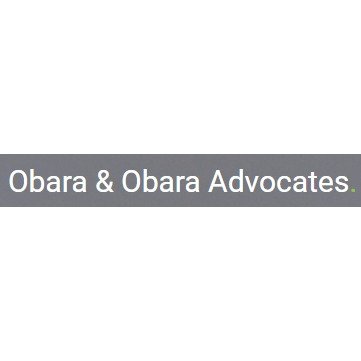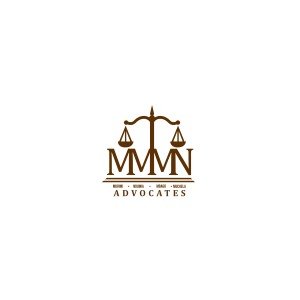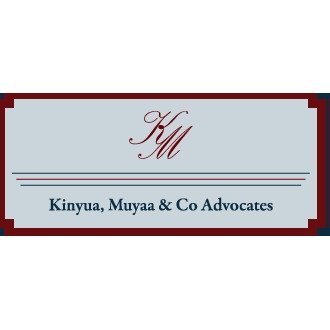About Debt & Collection Law in Mombasa, Kenya
In Mombasa, Kenya, Debt & Collection Law is a key area of the legal framework that governs the responsibilities and rights of creditors and debtors. It includes guidelines on how debts should be handled, the legal procedures for collection, and the protections available to both debtors and creditors. The legal system aims to ensure fair practices, prevent harassment, and provide mechanisms for resolving disputes. This is essential in promoting financial stability and integrity while ensuring justice for all parties involved.
Why You May Need a Lawyer
There are several situations where you may require the expertise of a lawyer in the field of Debt & Collection:
1. If you are a creditor trying to collect a debt and the debtor is unresponsive or evading payment.
2. When you are a debtor facing aggressive collection practices or harassment from creditors.
3. If there is a dispute over the amount owed or the terms of repayment.
4. When you need to understand your rights and options under Kenyan law for restructuring or settling debts.
5. If you are dealing with complex cases involving multiple creditors or international debts.
6. When seeking guidance on the legal procedures to follow when pursuing debt recovery through the courts.
Local Laws Overview
Debt & Collection in Mombasa is regulated under several national laws that aim to protect both creditors and debtors while ensuring fair trade practices:
1. The Consumer Protection Act: Prohibits unfair and deceptive practices, providing a framework for fair debt collection practices.
2. The Contract Act: Governs contractual obligations between debtors and creditors, ensuring enforceability of loan agreements.
3. The Bankruptcy Act: Offers provisions for declaring bankruptcy, detailing processes for handling insolvency and debt relief.
4. The Auctioneers Act: Regulates the conduct of auctioneers, who may be involved in the recovery of debt through asset sales.
Collectively, these laws seek to balance the rights and responsibilities of both parties, ensuring equitable resolution of debt-related issues.
Frequently Asked Questions
What should I do if a creditor is harassing me?
If you experience harassment from a creditor, it's important to know your rights under the Consumer Protection Act. You can report the harassment to the relevant authorities and seek legal advice on how to protect yourself.
How can I legally collect a debt owed to me?
You can pursue various avenues such as direct negotiation, using a collection agency, or legal action. Consulting a lawyer can help you determine the best approach for your situation.
What is the statute of limitations for collecting a debt in Kenya?
The statute of limitations generally allows creditors six years to collect a debt, although this may vary based on specific circumstances. It's best to consult a lawyer for precise information based on your case.
Can I negotiate my debt repayment terms?
Yes, negotiation is often possible. Creditors may agree to new repayment terms, especially if you provide valid reasons for the adjustment. Legal assistance can be helpful in these negotiations.
What are my options if I'm unable to pay my debts?
You might consider bankruptcy, negotiating new payment terms with creditors, or exploring debt consolidation. It's advisable to seek legal guidance to explore your options.
How does bankruptcy affect my debts?
Bankruptcy can offer relief by discharging certain debts; however, it has significant long-term implications. Consulting a lawyer can help you understand the process and its effects fully.
Can a creditor seize my property for unpaid debts?
Creditors can seek legal permission to seize property, usually through a court order. Understanding your rights and the legal process is critical, necessitating legal counsel.
Is there a government body that regulates debt collection practices?
The Competition Authority of Kenya oversees consumer protection matters, including debt collection practices. They can provide guidance and address grievances.
What happens if a debt collector violates my rights?
Violations can be reported to the Competition Authority of Kenya. Engaging a lawyer can help you take appropriate actions to protect your rights.
Can debt collection agencies operate without a license?
No, debt collection agencies must be licensed. Operating without a license is illegal, and such practices can be reported to authorities.
Additional Resources
If seeking further support, consider the following resources and organizations:
- The Competition Authority of Kenya for consumer protection matters.
- The Law Society of Kenya for finding qualified legal professionals.
- Non-governmental organizations offering financial counseling and legal aid.
- Government agencies providing information on regulations related to debt and collections.
Next Steps
If you need legal assistance in Debt & Collection, start by identifying your specific needs and gathering relevant documentation related to your debt issues. Contact a lawyer specializing in this field, or visit the Law Society of Kenya for a referral. Utilize available resources and ensure any practice or representative you work with is legally recognized and reputable.
Lawzana helps you find the best lawyers and law firms in Mombasa through a curated and pre-screened list of qualified legal professionals. Our platform offers rankings and detailed profiles of attorneys and law firms, allowing you to compare based on practice areas, including Debt & Collection, experience, and client feedback.
Each profile includes a description of the firm's areas of practice, client reviews, team members and partners, year of establishment, spoken languages, office locations, contact information, social media presence, and any published articles or resources. Most firms on our platform speak English and are experienced in both local and international legal matters.
Get a quote from top-rated law firms in Mombasa, Kenya — quickly, securely, and without unnecessary hassle.
Disclaimer:
The information provided on this page is for general informational purposes only and does not constitute legal advice. While we strive to ensure the accuracy and relevance of the content, legal information may change over time, and interpretations of the law can vary. You should always consult with a qualified legal professional for advice specific to your situation.
We disclaim all liability for actions taken or not taken based on the content of this page. If you believe any information is incorrect or outdated, please contact us, and we will review and update it where appropriate.














